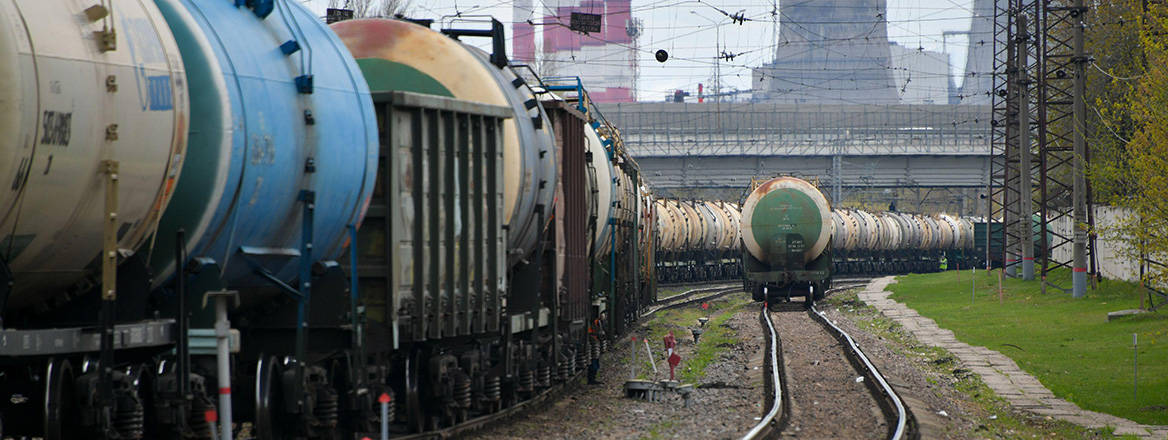Russia’s Use of Hydrocarbons in its Foreign Policy since the Ukraine Invasion
Emily Ferris
9 November 2023Long Read
Understanding how Russia constructs its energy security and foreign policies is essential to anticipating how it might behave in international forums, particularly on challenging issues such as environmental and energy security.
This paper examines how Russia’s energy policy has interacted with its foreign and defence policies since its full-scale invasion of Ukraine in February 2022. The key findings are:
- Russia perceives any restriction of its access to and exploitation of oil and gas markets both within Russia and abroad as a serious security threat. Restriction could either be through international sanctions that prevent Russia from accessing deep-water oil deposits, or the international climate change agenda that calls for a reduction on oil and gas production.
- As a major oil and gas producer, Russia considers the hydrocarbons industry to be a key part of its political economy and therefore its national security. Prior to Russia’s invasion of Ukraine, Russia’s role as an energy provider – or sense of international responsibility to its clients – was thought to keep some of its behaviour in check, even as Russia had in the past wielded its energy supplies to extract political concessions from some of its former Soviet neighbours. Ultimately, Russia’s security goals in Ukraine overtook any of this responsibility, which has framed much of the debate around Russia’s future as a declining energy power in Europe.
- Russia’s understanding of energy security is bound up in the country’s sovereignty, and with strategic competition with other states over resources. Ensuring security of demand and continued access to resources are part of Russia’s national security framework and even its national identity.
- The war has increased the urgency for Russia to seek out alternative alliances and structures with China and Iran. In recent years, Russia has established its own energy forums with partners such as Saudi Arabia and some African states – work which has become more pressing since the war began and Russia’s energy relations with the West have been significantly reduced.
- Russia claims that the West is seeking to undermine it through its dominance of energy resources, and that international forums, such as the UN, are prejudiced against Russia’s national interests. Russia also conflates energy with politicking, maintaining that Western efforts to cap its production prices or curtail nuclear energy use are part of a campaign to undermine Russian values and assert a neoliberal agenda.
The war has intensified Moscow’s need to identify new export destinations, with rail and pipeline networks that were previously in train accelerated. But to do so, particularly towards the Indo-Pacific region, Russia must link up its oil and gas reserves with maritime and rail infrastructure. This includes new terminals along the Northern Sea Route that can process liquefied natural gas, coal and oil and updating port infrastructure, as well as new ice-class vessels for exports.
- Investments in the North–South Corridor via Iran have also gained traction since the war began, particularly to export oil and deliver on some of the practical elements of Russia’s foreign policy, by bringing Iran and India closer to its economic network. Russia has also identified specific development zones in the Arctic that are rich in hydrocarbons or have access to the sea.
- Prior to the war, Gazprom’s monopoly in Europe had been unchallenged, but this is not the case in Asia, where it faces rival Novatek – this infighting may impact Russia’s ability to expand its energy plans in China. The Power of Siberia 2 pipeline contract with China, as yet to be signed, would give Gazprom a future role in Asia.
- Russia tends to use international platforms like the UN to further its own national interests or ensure it has a stake in the conversation, rather than in pursuit of a common cause. Since the war began, Russia’s ability to interact with other (especially Western) states has been restricted.
- Since the war began, Russia and Saudi Arabia’s coordination through OPEC+ has been more pressing. Riyadh has not aligned itself with the Western consensus on Ukraine, nor has it introduced sanctions on Russia. But the war has caused a decline in global energy prices, and there are frictions between Russia and Saudi Arabia over Russia’s refusal to publish its oil export figures. Riyadh suspects that Moscow continues to export significant volumes of oil despite their price agreements, but the former has not criticised this and, since the war began, has invested in Russian companies like Gazprom.
- Russia is highly affected by climate change, but also banks on its status as a commodities producer to retain its international position. This inconsistency informs its strategic policymaking on the environment, as well as its behaviour in international forums related to climate change. Moscow often objects to international climate change efforts because it prioritises Russia’s national security, not the security implications that can stem from climate issues. While climate change can affect Russia’s national security, it is described as an issue that threatens Russia’s economic development, requiring technological or practical solutions, not adjustment to the extractive industries. Russia also views warming Arctic seas as more of an opportunity to improve access to shipping lanes than a crisis.
- Russia views the Western-led climate change movement as an agenda seeking to undermine Russia and its interests in the extractive industries. Moscow’s installing of former intelligence officials in posts concerned with environmental security highlights the crossover in the Kremlin’s mindset between the environment and national security.
- Since the war, many environmental links between Russia and the West have been severed. Moreover, there is little international oversight of Russia’s major drilling projects or their environmental impact, and legislation that restricts ecological activism has been tightened. Most Western-led NGOs dedicated to the environment have been shut down.
- Ultimately, even if the UK can decouple from Russian oil, the complex and global nature of international energy markets means Russia’s behaviour as a hydrocarbon superpower can still impact the UK’s energy security. Russia views external attempts to cap oil prices as a dangerous precedent that could be extended to other areas of the Russian economy and Russian values. This indicates that Moscow interprets international economic and pragmatic decisions as a direct attack on Russian sovereignty.
WRITTEN BY
Emily Ferris
RUSI Senior Associate Fellow, International Security
- Jim McLeanMedia Relations Manager+44 (0)7917 373 069JimMc@rusi.org


